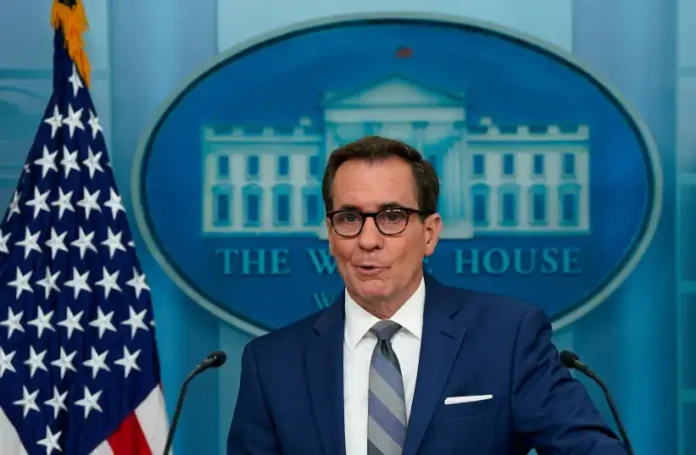The Pentagon has issued a stark warning about the ongoing threat posed by Iran and its affiliated proxy groups, following a series of recent escalations in the Middle East.
In a briefing on Monday, U.S. National Security Communications Advisor John Kirby emphasized that Iran remains a significant security concern for Israel, despite recent developments.
“We have to assume that Iran remains postured and prepared,” Kirby stated, underscoring the U.S. commitment to maintaining a robust military presence in the region.
This stance reflects the serious nature of the current geopolitical climate, which has seen a series of confrontations involving Iranian-backed factions.
The warning comes in the wake of a dramatic preemptive strike by the Israel Defense Forces (IDF) on Sunday. The IDF targeted drones and missiles launched from Lebanon by Hezbollah, a Lebanese militant group closely aligned with Tehran.
The operation was a response to imminent threats against Israeli territory and highlights the high-stakes environment in which these conflicts are unfolding.
Pentagon spokesperson Air Force Major General Patrick Ryder reiterated the U.S. assessment of the ongoing threat. “We continue to assess that there is a threat of attack,” Ryder told reporters, adding that the situation requires continuous vigilance.
On the Iranian side, officials have publicly downplayed the IDF’s recent success and expressed defiance towards Israel’s military capabilities.
Iranian Foreign Ministry spokesperson Nasser Kanaani commented that Israel had lost its deterrent power and that the strategic balance in the region had shifted unfavorably against it.
Kanaani’s remarks reflect Tehran’s broader strategic posture, emphasizing a shift in the regional power dynamics due to recent conflicts.
Iranian Foreign Minister Abbas Araqchi also addressed the situation, stressing Iran’s right to retaliate against Israel for the assassination of Hamas leader Ismail Haniyeh.
Despite Israel’s denial of involvement in the killing, Iran has condemned the act and vowed a “definite, calculated and accurate” response.
Araqchi communicated this stance during a phone call with his Italian counterpart, as reported by Iran’s Foreign Ministry.
The Pentagon’s statements and the reactions from Iranian officials underscore a heightened state of tension in the Middle East.
The U.S. continues to monitor the situation closely, balancing diplomatic efforts with a substantial military presence to deter potential escalations.
As the region remains on edge, the dynamic interplay between regional actors and international stakeholders will likely shape the unfolding geopolitical landscape.

